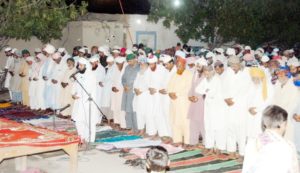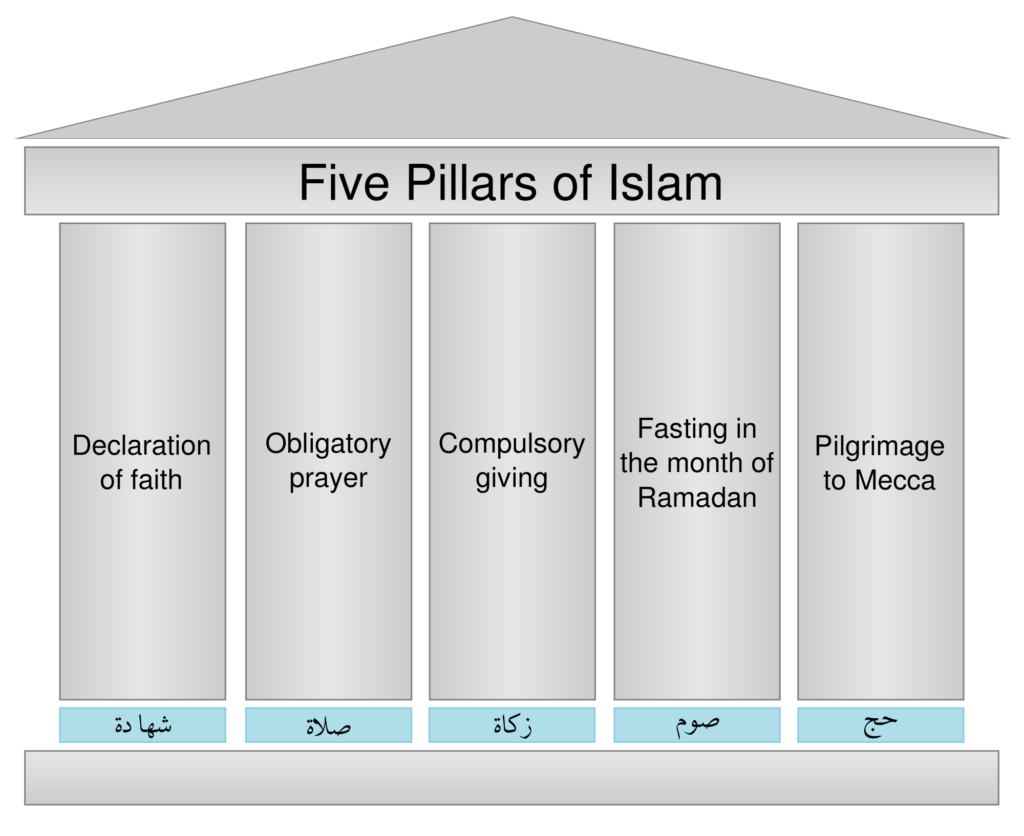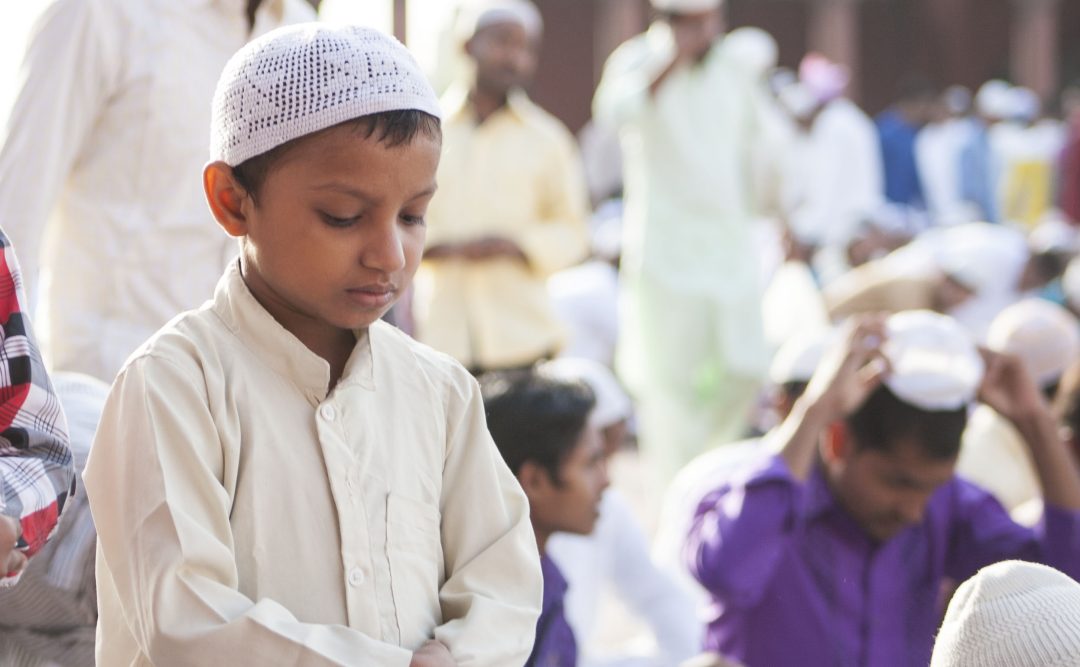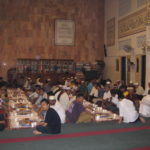Unlike Judaism or Christianity, Islam does not have an important rite of passage such as a Bar Mitzvah/Bat Mitzvah or a baptism. However, in Islam, there may be a few indicators, although not necessarily universally accepted, a few smaller and insignificant rites of passages that accumulate into making oneself a more devout Muslim.
The Namaz
One of such important transitions in the religion of Islam is daily prayer. “Namaz”, as many call it, consists of the required five daily prayers that Muslims must do in order to become a more technical Muslim.
 In most Islamic cultures, children are trained to start praying at very early ages yet most don’t understand the meaning of such prayers until years later. Therefore, it may or may not serve as an adequate transition of becoming an adult Muslim however its role is very significant in becoming a more “textbook” Muslim.
In most Islamic cultures, children are trained to start praying at very early ages yet most don’t understand the meaning of such prayers until years later. Therefore, it may or may not serve as an adequate transition of becoming an adult Muslim however its role is very significant in becoming a more “textbook” Muslim.
The holy month of Ramadan
Another such event occurs during the Holy month of Ramadan/Ramazan, where Muslims, those that are healthy and old enough at least, fast from sundown to sunset for approximately twenty-nine to thirty days without food or water. For many Muslims, the first time someone takes the initiative to fast during the whole month of Ramadan, it is not something to be celebrated, but rather something to be proud of as you are advancing your way to becoming a technically better Muslim. Depending on varying cultures and physical attributes, it is difficult to determine the average age of such participants. However, it could range from ages eight to fifteen.

Although ages of participants vary on this next rite of passage, it usually serves as the most important transition in becoming a more spiritual and devout Muslim. This event, Hajj, involves a Muslim making a pilgrimage to Mecca, Saudi Arabia during the month of Dhu Al-Hijjah. According to the five pillars of Islam, every capable person must make this pilgrimage at least once in their lifetime. During this event, all participants dress solely in the customary attire involving two separate white cloths that are wrapped around the body in an effort to help create an equal and conjoined community of pilgrims. After such rituals as walking around the Kaaba seven times, touching the Black Stone, and throwing rocks at a stone symbolizing the devil, most participants subsequently feel much closer to God and more religious.
As you can see, most transitions between childhood and adulthood could actually be derived from the five pillars of Islam.’






